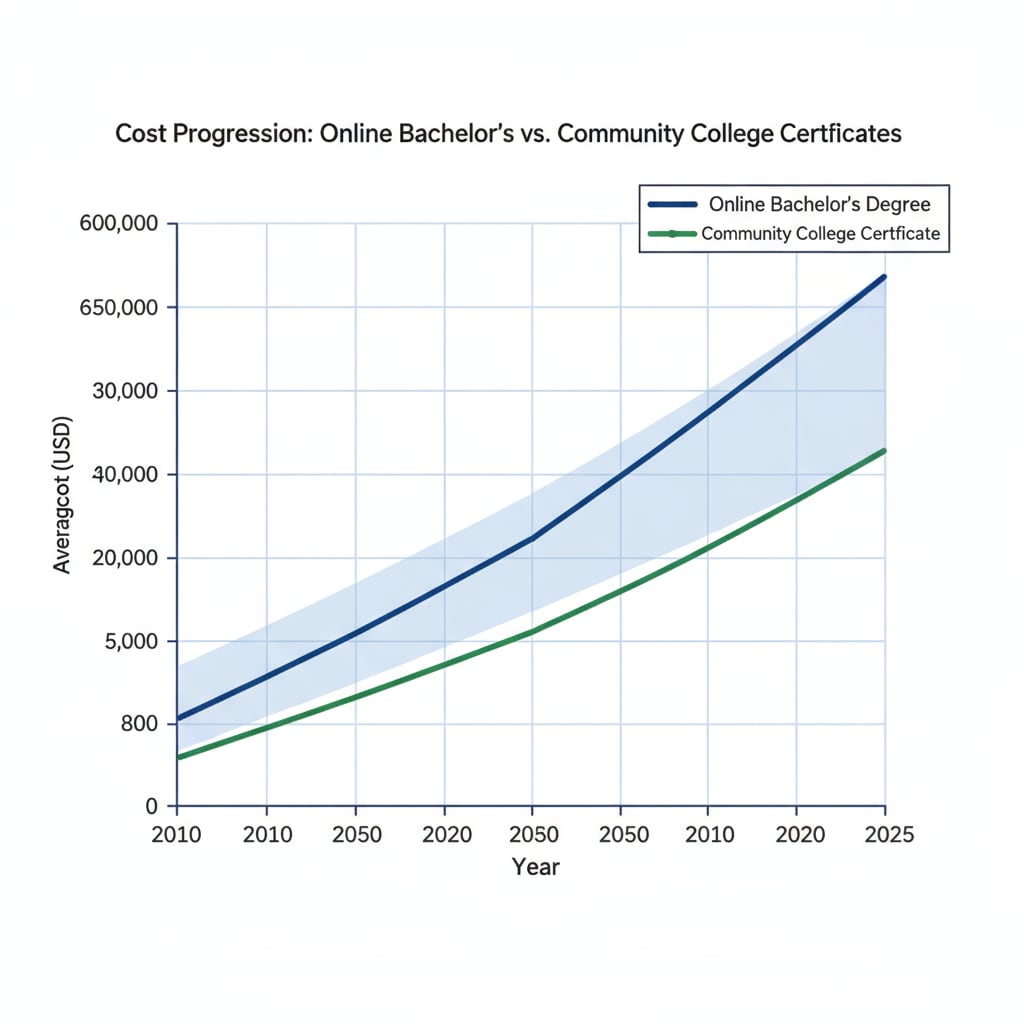In an era where educational costs are on the continuous rise, understanding the nuances of educational options through data analysis becomes crucial for effective career planning. Two popular paths that learners often consider are online bachelor’s degrees and community college certificate programs. This article aims to provide a comprehensive cost-benefit analysis of these two choices, enabling individuals to make informed decisions about their educational investments.

The Financial Aspect of Online Bachelor’s Degrees
Online bachelor’s degrees have gained significant traction in recent years due to their flexibility. However, when it comes to cost, they can vary widely. According to data from the National Center for Education Statistics, the average cost of an online bachelor’s program can range from a few thousand dollars to upwards of $100,000, depending on the institution, program, and whether the student is in-state or out-of-state. For example, some public universities may offer more affordable online programs for in-state students, while private institutions generally come with a heftier price tag. Additionally, students need to factor in costs such as textbooks, software licenses, and potential technology fees. Therefore, a detailed cost breakdown is essential before enrolling in an online bachelor’s program.
Cost Considerations for Community College Certificate Programs
Community college certificate programs are often lauded for their affordability. These programs typically take less time to complete compared to bachelor’s degrees, which also reduces the overall cost. As stated by the American Association of Community Colleges, the cost of a certificate program can be a fraction of that of a full bachelor’s degree. Community colleges receive state and local funding, which helps keep tuition costs down. Moreover, they often offer financial aid and scholarships specifically for certificate program students. For instance, some programs may cost only a few thousand dollars, making them an attractive option for those on a tight budget.

Another aspect to consider is the potential return on investment (ROI) for both options. An online bachelor’s degree may open doors to a wider range of high-paying jobs in the long run. Many corporate positions and certain professional fields require a bachelor’s degree as a minimum qualification. However, the time and cost required to earn this degree mean that the ROI may take longer to materialize. On the other hand, community college certificate programs can lead to immediate employment in specific trades or industries. For example, a certificate in nursing assistant or culinary arts can result in a job with a decent wage within a relatively short period. This quicker entry into the workforce can offset the lower initial investment in the certificate program.
Readability guidance: As we’ve seen, both online bachelor’s degrees and community college certificate programs have their own cost structures and potential benefits. When making a decision, individuals should consider their career goals, financial situation, and time constraints. By conducting a thorough data analysis of the costs and potential returns of each option, learners can align their educational choices with their long-term career planning. This way, they can make the most of their educational investments and embark on a path that leads to professional success.


